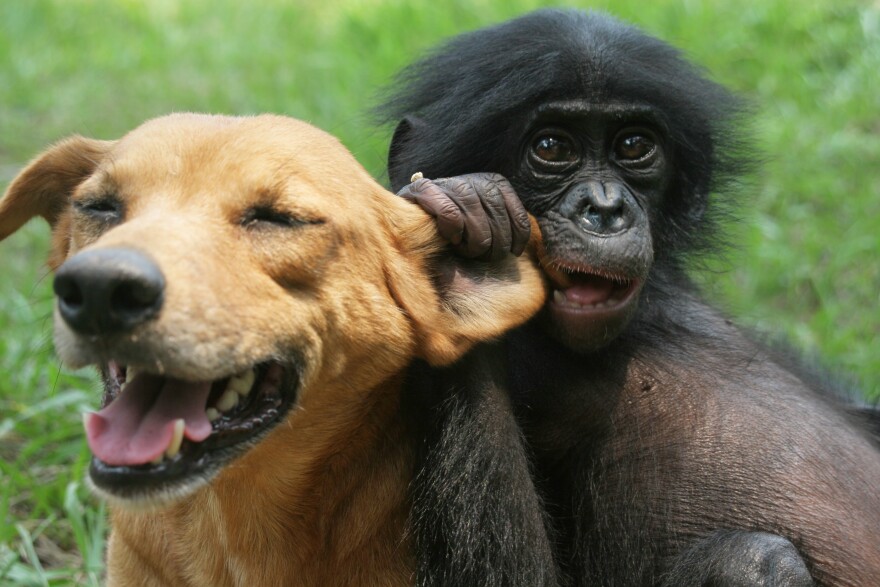When thinking about evolution, Charles Darwin’s theory of natural selection, or “survival of the fittest,” is ingrained as the reason why some organisms thrived and others faltered. But our cultural understanding of “fittest” focuses on brute strength and size. What if there was another way to explain the success of some species?
Brian Hare is a professor in the department of evolutionary anthropology at Duke University, where he founded the Duke Canine Cognition Center. And Vanessa Woods is the director of the Duke Puppy Kindergarten, as well as a journalist and the author of “Bonobo Handshake: A Memoir of Love and Adventure in the Congo” (Gotham/2010). They co-authored “Survival of the Friendliest: Understanding Our Origins and Rediscovering Our Common Humanity” (Random House/2020) to explain how a predisposition for friendliness led species like bonobos, domesticated dogs and even Homo sapiens to flourish.
''Friendliness is defined loosely as intentional or unintentional cooperation [that] leads to these great benefits.''
Host Anita Rao talks with Hare and Woods about the book and its implications for how humans interact with each other.
Interview Highlights
Hare on the misunderstanding of “survival of the fittest”:
Thinking about survival of the fittest as the big, the strong and the meanest are somehow superior, is [to totally] misconstrue Darwin's idea. Darwin's only argument was that individuals who leave more offspring are fitter … We think our species is another one of those where friendliness wins and that life's best strategy — and the most successful strategy — is when an organism finds a new way to be friendly and a new way to cooperate. And dogs actually are Exhibit A of that.
Hare on why dogs are such a successful, friendly species:
We have really nice evidence that from experimental work and also a variety of other types of studies that dogs became extremely friendly as a result of their interactions with us. The fear towards us that a wild wolf might have towards humans or human population was replaced with friendliness, and that friendliness allowed them to take advantage of human settlements and garbage. And they took over the world as a result and became one of the most successful species. And we know that that selection for friendliness actually helped them become more cooperative and communicative. And it's why [my childhood dog] Oreo and everyone's dog at home is so good at understanding us, because when you select for friendliness, you, by accident, are selecting for things like floppy ears and curly tails and also for this cooperative communicative ability.
''New forms of friendliness and cooperation are almost universally associated with big changes in life.''
Woods on the “mama bear hypothesis”:
What we hypothesize is that our love for each other and those who we think as being part of our group is actually also the source of our most heinous cruelty. So we use the “mama bear'' because: When is the mother bear most adorable and most friendly and most loving? It's with her cubs. But that's also the moment in which she is most dangerous [to outsiders]. So as humans, we have this unique ability to see a stranger as being part of our group and no other animal has that, not even dogs … And we have learned to be able to cooperatively communicate and share and be altruistic to those people. But the flip side is if we see someone as not being part of our group — or even worse, threatening our group — then we are capable of horrible things.
Woods on how humans can channel their inner bonobos and cooperate with strangers:
The most powerful way to bridge these groups is through cross-group friendships. So to build a bridge to another group that you have found historically threatening is to form a friendship with someone in that group. And if you can do that, not only will you increase your own ability to humanize [the group], but you'll bring that back to your group and it will have this kind of ricochet effect. So cross-group friendships are really one of the most powerful ways that we've found to sort of short-circuit our ability to dehumanize outsiders.









